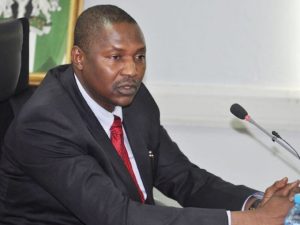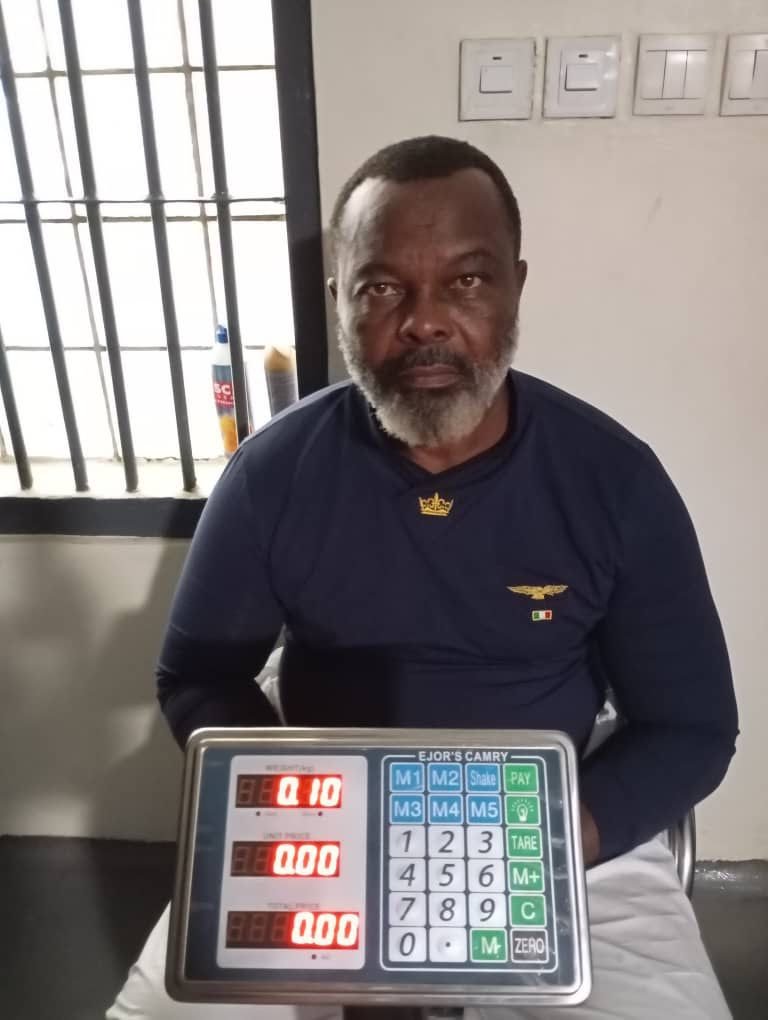
Abubakar Malami, the Attorney-General of the Federation and Minister of Justice, has written to President Muhammadu Buhari, urging him to back off on his administration’s legal battles against the principal actors in the controversial Malabu Oil deal.
The raging scandal over the OPL 245 oil block began in 2011 when the President Goodluck Jonathan administration approved its purchase by Shell and Agip-Eni from Malabu Oil and Gas Ltd., a firm with ties to Dan Etete, a Minister of Petroleum from 1995 to 1998.
The Jonathan administration officials who participated in the negotiation preceding the controversial sale of the massive oil block included Mohammed Bello Adoke, Attorney-General at the time; and Diezani Alison-Madueke, who was petroleum minister.
Mr. Jonathan himself was named by investigators as being involved in the alleged fraud, but the former president strongly denies the charges.
The Economic and Financial Crimes Commission (EFCC) has been pursuing fraud and criminal conspiracy charges against Mr. Adoke, Mr. Etete and their alleged accomplices since 2016. Messrs. Adoke and Etete are believed to be at large, and the anti-graft agency had repeatedly sought to fish them out.
Adoke, Etete, Alison-Madueke and all other officials named in the scandal have denied wrongdoings.
Adoke said the sale was approved to save Nigeria from huge financial losses that could arise from international arbitration lawsuits.
In his letter to Buhari, Malami said, following due examination of the case files, he was able to determine that the EFCC has no significant evidence to prove its allegations of sharp practices against prominent players like Adoke, Alison-Madueke and others.
Besides, Malami said the Nigerian government risks being portrayed before the international community and foreign investors as an unserious country that could not be trusted to live up to its obligations to international partners.
“Clearly, potential investors will not have the confidence to invest in Nigeria if the government of the country is perceived as one which does not honour its commitments,” Adoke said of the OPL 245 oil deal which was approved by at least three former Nigerian Attorneys-General.
The September 27, 2017 letter advised the president to pursue Nigeria’s possible investment in the disputed oil blocks rather than trying to repossess it or prosecute former Nigerian government officials or Shell or Agip-Eni chiefs involved in the deal.
It came as the EFCC ramps up legal efforts towards bringing Adoke back into Nigeria to face prosecution.
But Malami insisted that the anti-graft office is on a wild goose chase and that the president should immediately intervene to save Nigeria from international embarrassment and reputation damage.
“There is nothing to show that the parties as constituted were at all times working together and having ‘meeting of the mind’ to wit to forge CAC documents and use same for the purpose of divesting the shares of the complainants and thereafter enter into a settlement agreement with FGN and other parties to take delivery of the proceeds of sale OPL 245.
“There is also nothing in the proof of evidence to support the charge of money laundering and it is therefore impossible for the prosecution to prove the elements which include illicit funds, transfer for such through various channels to re-introduce same again into the regular financial system as legitimate funds in financial institutions, etc.
“Without the express proof of these elements, the count may not be sustained on the premise of the attached proof of evidence.
“The EFCC investigation and attached proof of evidence do not appear to have clearly revealed the case of fraud against the parties who claimed to have acted in their official capacities with the approval of three consecutive presidents of the federal government of Nigeria at the time with further claim that the matter was intended to be resolved in national interest thereby saving the country acrimonious litigations resulting in high legal fees and the dormancy of the oil field while litigation lasted,” Malami said.





